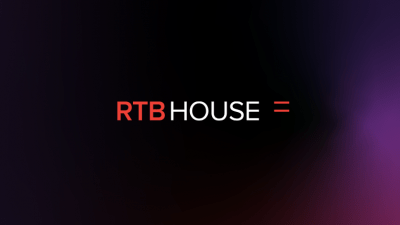Last Updated on: 10th July 2023, 09:20 am
We now know that third-party cookies will be staying with us a little longer. On June 24, Google released an updated timeline for the Privacy Sandbox – a high-level plan indicating that it will phase out support for third-party cookies over a three month period starting mid-2023.
The question is – how much more time does the industry actually have? The answer is – not much. Based on the official procedures for bringing new features to Chrome, we at RTB House expect that the next two years will be filled with work.
In this article you will learn about:
- The industry perspective on the updated timeline for phasing out 3rd-party cookies
- The stages of preparations made by agencies
Table of Contents:
- Łukasz Włodarczyk, VP of Programmatic Ecosystem Growth & Innovation at RTB House
- Małgorzata Węgierek – CEO at Havas Media Group Poland
- Santadip Roy, Head of Digital – Initiative MENAT, Head of Digital – Magna Global MENA
- Marcela Pinedo, Special Projects Director at Initiative
- Sofia Ribeiro, Head of eCommerce, Transact, Omnicom Media Group Portugal
- Marek Karczmarz, Senior Programmatic Specialist at Sigma Bis S.A.
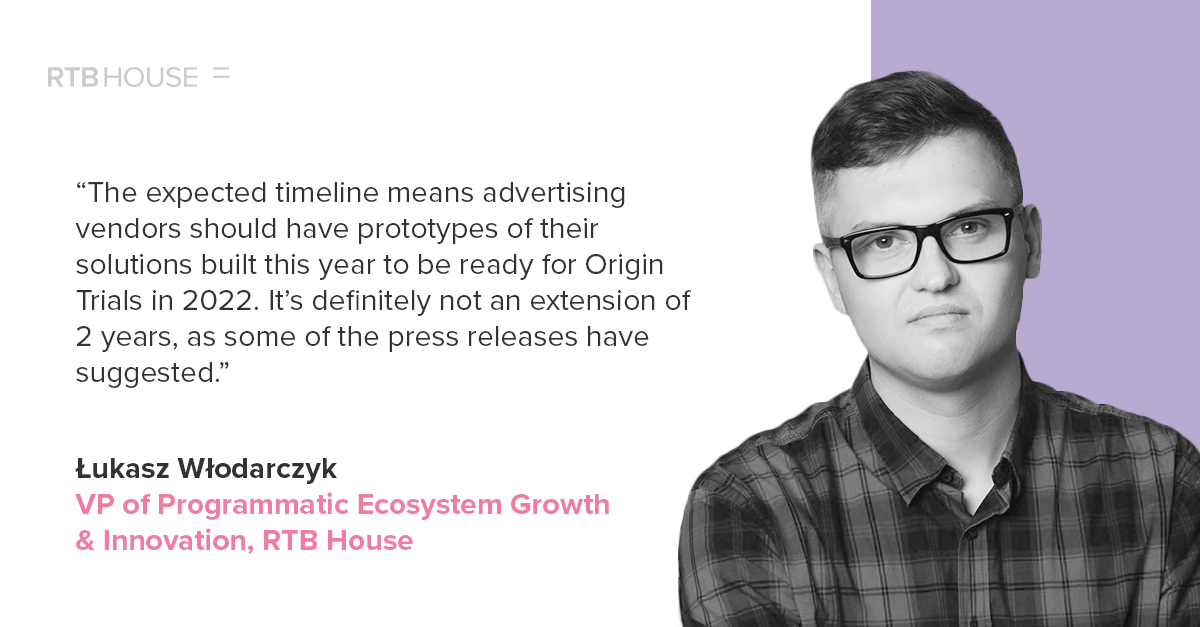
Łukasz Włodarczyk, VP of Programmatic Ecosystem Growth & Innovation at RTB House:
There will be no silver bullet for the cookieless future, but the optimal balance between methods is yet to be determined. The leading advertising vendors will provide complementary solutions combining individual, group-based and contextual targeting methods that will navigate marketers towards new marketing strategies.  We’re excited to continue our collaboration with other industry leaders on privacy-preserving advertising. One that addresses legitimate use cases and efficient, relevant advertising, while increasing the competitiveness between ad tech and publishers – no matter the size.
We’re excited to continue our collaboration with other industry leaders on privacy-preserving advertising. One that addresses legitimate use cases and efficient, relevant advertising, while increasing the competitiveness between ad tech and publishers – no matter the size.
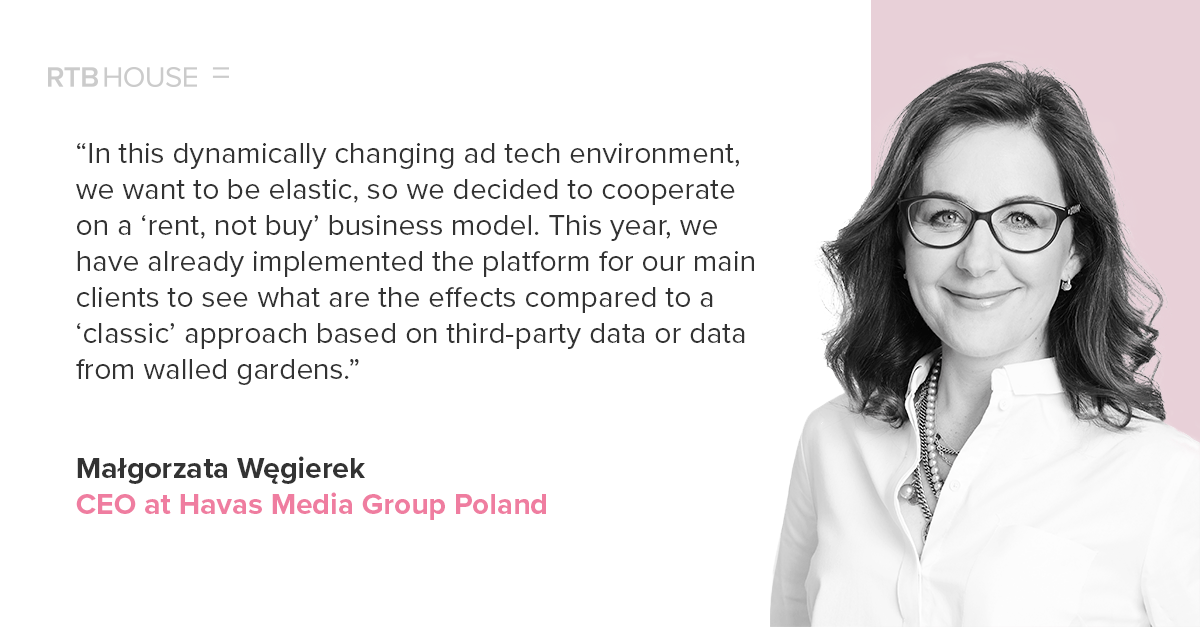
Małgorzata Węgierek – CEO at Havas Media Group Poland:
“At Havas, we were and are ready for this change, but we will certainly use these extra two years not only for building awareness of the change, but also for testing new targeting possibilities with our clients. There are clients who use mainly walled garden (like Google) tools to analyze and target their audiences and there are clients who use dedicated DMP/CDP platforms for that purpose. We can offer a solution which is ready for the cookieless future, easy to implement, packed with publishers’ first-party and our partners’ zero-party data, and with connectors to all key buying platforms. In this dynamically changing ad tech environment, we want to be elastic, so we decided to cooperate on a “rent, not buy” business model. This year, we have already implemented the platform for our main clients to see what are the effects compared to a “classic” approach based on third-party data or data from walled gardens.”
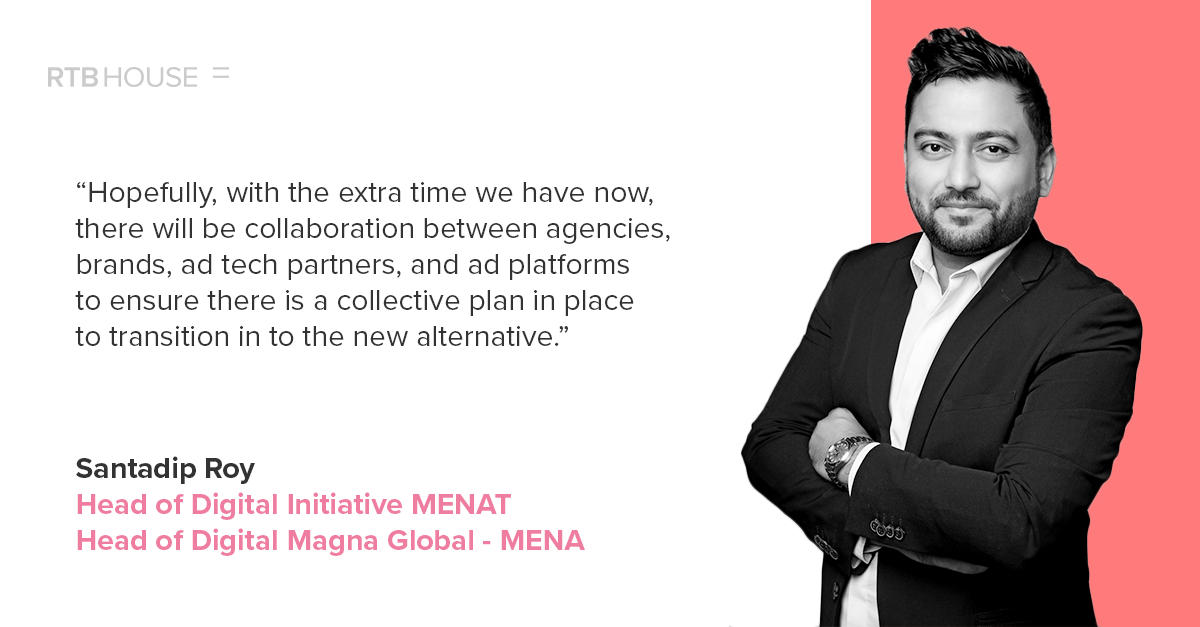
Santadip Roy, Head of Digital – Initiative MENAT, Head of Digital – Magna Global MENA:
“The extension is a saving grace as I don’t believe we as an industry were set up to deal with a cookieless future by 2022! There is a lot of ambiguity on what a brand needs to do to mitigate risks and how Google’s new cookieless alternative, FLoC, will work. Some marketers are able to build first-party data solutions, but doing this at scale is not possible for all brands because it requires considerable financial investment and technical expertise to do properly. We need to ensure that the solutions we build do not see us rewinding to the days of old-school contextual targeting, as we have come so far in building a world of data-driven marketing. Hopefully, with the extra time we have now, there will be collaboration between agencies, brands, ad tech partners, and ad platforms to ensure there is a collective plan in place to transition in to the new alternative.”
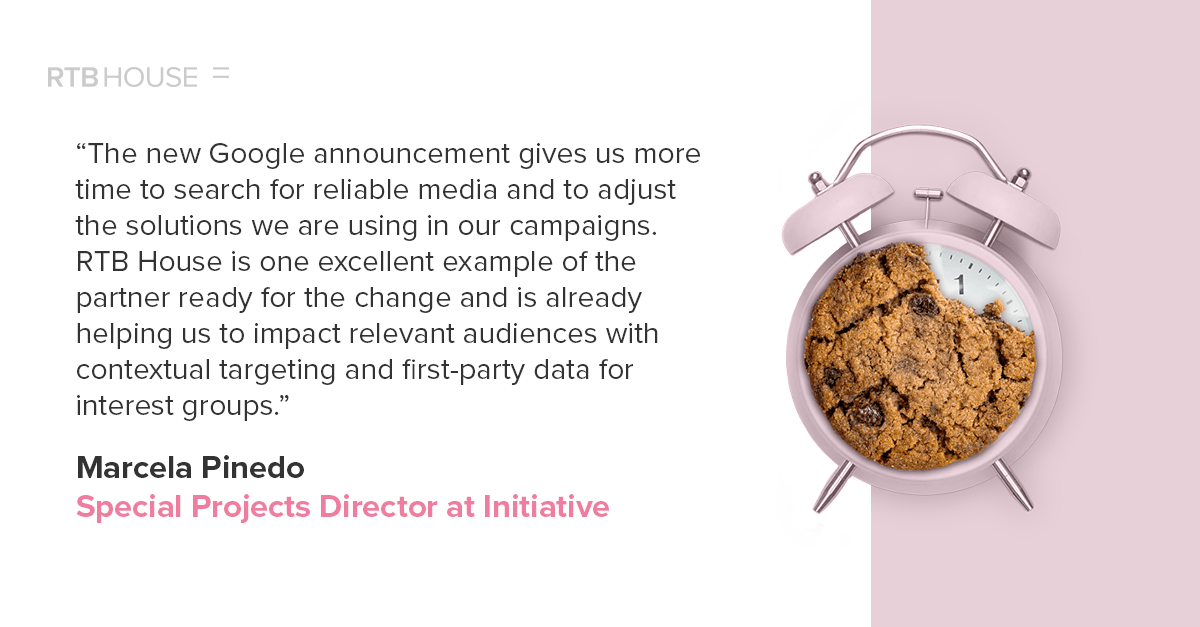
Marcela Pinedo, Special Projects Director at Initiative:
“The new Google announcement gives us more time to search for reliable media and to adjust the solutions we are using in our campaigns. RTB House is one excellent example of the partner ready for the change and is already helping us to impact relevant audiences with contextual targeting and first-party data for interest groups.”

Sofia Ribeiro, Head of eCommerce, Transact, Omnicom Media Group Portugal:
“The changes we are facing regarding the digital ecosystem are making the advertising industry rethink context and customer attention. In the media, this shift will highlight the considerable importance of both precision and contextual targeting and our challenge will be to help brands prepare for the future, even with the postponement announcement. To accomplish this, strategies must focus on the balance of more accurate targeting, through the activation and leveraging of each brand’s most valuable data (first-party), as well as using broader data to achieve a scale where quality context will be the key to ensuring relevance and impact. Both together will be crucial in order to meet results and preserve consumer experiences while minimizing impact.”
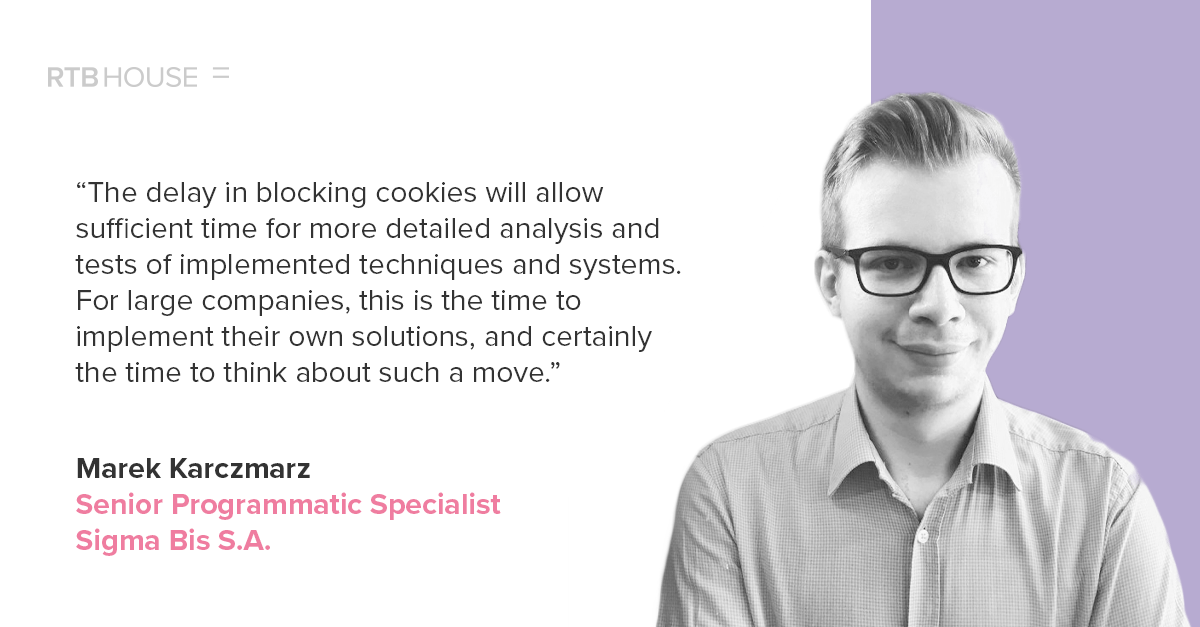
Marek Karczmarz, Senior Programmatic Specialist at Sigma Bis S.A.:
“The phase-out of third-party cookies by Google created more approaches to the development of the CDP/DMP technology. New data collection companies have appeared on the market, while already-existing ones are experiencing a significant increase in interest in their technology.
Not only large Media Houses or global clients, but all digital marketing entities have started to be interested in technology for data processing and collection. Additionally, the phase-out of third-party cookies has become a challenge for the entire media market as alternative solutions will also have disadvantages. DMP systems have begun to consider integrations with publishers as a response to Google’s ban on cookies. The delay in blocking cookies will allow sufficient time for more detailed analysis and tests of implemented techniques and systems. For large companies, this is the time to implement their own solutions, and certainly the time to think about such a move.”
If you have any questions, comments or issues, or you’re interested in meeting with us, please get in touch.

